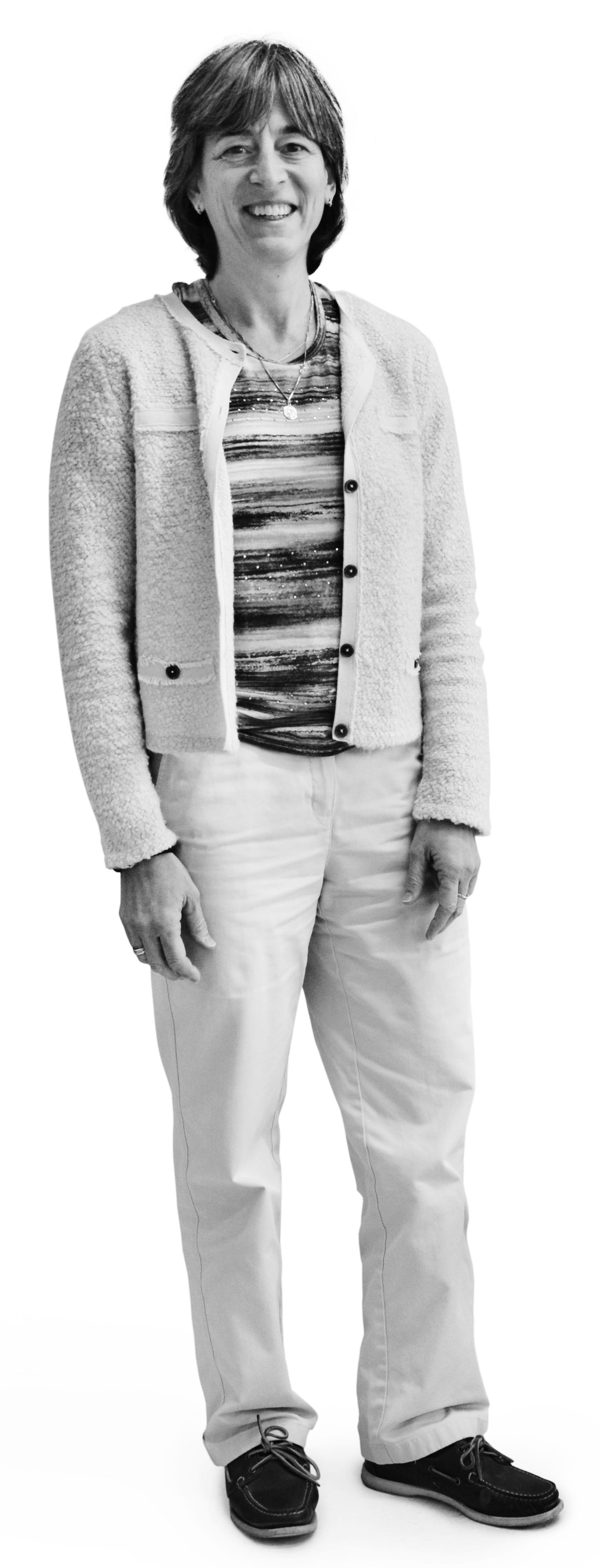Center research on novel receptor targets and the circadian clock is strengthened with two grants worth DKK 60 million each
The Center's Managing Director Torben Klein says:
“We are very happy to have received two major grants that will strengthen our ability to focus on treating and preventing diabetes. The fact that two of the four grants have been awarded to center researchers indicates that our scientists works on the forefront of research in diabetes and obesity. I am also very happy about the new opportunities that these considerable grants will create for our researchers.”
How does the circadian clock affect type 2 diabetes?
The challenge grant project of Professor Juleen Zierath is called “Epigenetic control and the circadian clock: turning back time on diabetes pathogenesis.”

Scientific Director Juleen Zierath
The basic hypothesis
The appropriate timing of exercise and nutrition throughout the day will maximize the adaptive response to these interventions. Preliminary findings highlight the importance of the timing of exercise and nutrition protocols to maximize the benefits of these interventions on metabolic health in “at risk” ageing populations.
The overall aim
To determine the interaction between circadian rhythms and the metabolic response to exercise and nutrition. This will allow us to define potent, practical, time efficient use of fitness and nutrition that can be implemented to prevent insulin resistance and type 2 diabetes. We will take a “bench to bedside” approach and identify the time of day for optimal exercise-nutrient interventions to induce the greatest effect on metabolism, through profiling DNA methylation, chromatin structure and small RNAs.
Expected outcome and perspectives
We will investigate whether beneficial effects of exercise on metabolism depend on internal peripheral clocks, and translate these discoveries into innovative exercise-nutrition protocols to improve insulin sensitivity in people with type 2 diabetes. This research constitutes a translational development of our fundamental research to the patient bedside, or to health recommendations to prevent metabolic diseases.
Scientific Director Juleen Zierath adds: “This is an exciting new area of research within the field of metabolism and we are delighted to have this opportunity to move the project forward. With funding from the Novo Nordisk Foundation, we can now build a strong international network between University of Copenhagen, and our collaborators at Karolinska Institutet; Australian Catholic University, and University of California, Irvine to further understand the health promoting effects of exercise in people with type 2 diabetes”.
Changing the differentiation and function of metabolic cells through drug-able receptor targets
The Challenge Grant project of Professor Thue W. Schwartz is entitled “Novel receptor targets in the prevention and treatment of diabetes and obesity”.

Scientific Director Thue W. Schwartz
The basic hypothesis
Through appropriate manipulation of pharmaceutically accessible cell surface receptors we can change the expression profile and/or the number of, for example the intestinal enteroendocrine cells to make them collectively store and secrete more of the gut hormone mixture - in particular GLP-1 - known from bariatric surgery and GLP-1 mimetics to ‘cure’ diabetes and obesity.
The overall aim
To identify and characterise the physiological function and the pharmaceutical potential of in particular key adhesion G protein-coupled receptors in the differentiation and specification of primarily enteroendocrine cells but also other metabolic target cells such as white and brown adipocytes.
Expected outcome and perspectives
We will generate deep new knowledge and a large number of biopharmaceutical tools and characterize the role of adhesion and related receptors in metabolism in particular in the differentiation process of key metabolic cell types. This will hopefully form the basis for totally novel ways of preventing and treating diabetes and obesity.
“Everybody in the lab is very excited about this grant which will have an enormous impact on our research as it enables us to work closely and very targeted towards a common goal together with three other, top level groups with frontline, complementary techniques and skills – I really think we can reach a whole new level of insight” says Scientific Director Thue Schwartz.
About the Novo Nordisk Foundation Challenge Programme
The Novo Nordisk Foundation Challenge Programme is a new programme that aims to encourage and facilitate world-class research focusing on finding answers to challenges in global technology or health. The grants of DKK 60 million each are disbursed over six years. To ensure that the best project proposals and teams of researchers are considered, the grants are awarded based on applications in open competition that are peer reviewed by a special expert committee.
The Board of the Foundation decides on the themes of the programme, which will vary from year to year. The themes in 2014 were research into preventing diabetes and obesity and research into complications of diabetes. Extraordinarily, DKK 240 million has been awarded to four projects in 2014. In the future, two grants will be awarded annually. The projects must be based at a public-sector or university-based research institution in Denmark.
More information about the Novo Nordisk Foundation Challenge grants (In Danish): Link
Further information
Tommy Pedersen, Communication officer at The Novo Nordisk Foundation Center for Basic Metabolic Research.
Mail: taspedersen@sund.ku.dk
Mobile phone: +45 2112 6727
